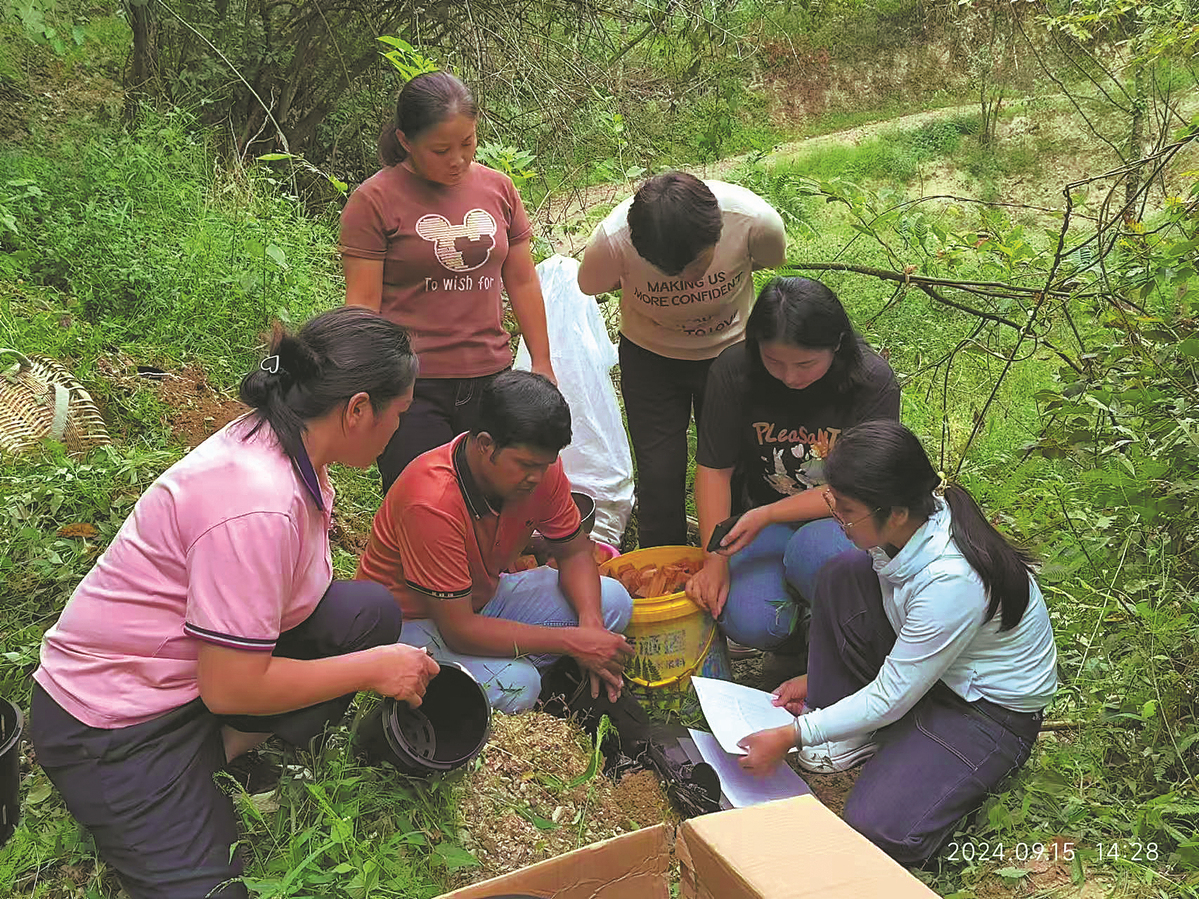China's experience in cultivating mushrooms grows on Indian farmers


At Guizhou University's College of Agriculture, the lab is filled with the earthy aroma of fresh mushrooms. Seated at clean benches under sterile airflow, students from India, Thailand and Pakistan carefully isolate and purify fungal strains for further study.
Southwest China's hot, humid climate and abundant rainfall create ideal conditions for fungal growth. Local culinary traditions, which include a wide variety of wild mushrooms, give researchers in Guizhou a natural advantage.
In 2023, Entaj Tarafder from Kolkata was drawn to Guizhou by its reputation in mycology and the province's ecological richness. He plans to apply what he's learning here to develop mushroom cultivation back home.
Under the mentorship of Professor Wang Yong, a plant pathologist at the college, postdoctoral researcher Tarafder is delving into mushroom taxonomy and ecology, exploring its promising environmental applications.
Over the winter break last year, Tarafder returned to Kolkata, where he led "PhD Village Chief" seminars on land preparation, edible fungus cultivation and disease management. In less than four weeks, more than 100 farmers and agronomy students attended his sessions.
This outreach is part of a university program that encourages international students to promote agricultural technology in their home regions, teaching cultivation methods and green pest management practices to boost farmers' incomes. Last year, participants ran similar projects in Pakistan's Punjab.
In a classroom at the University of Calcutta, Tarafder lifted a substrate bag to demonstrate its potential. "Did you know that in China this small bag can yield 500 grams of mushrooms?" he asked.
Though commercial mushroom farming is still in its infancy in eastern India, Tarafder said that adoption is accelerating.
"More farmers are embracing fungi both as food and income sources," he said.
During field surveys in the Himalayan foothills, farmers bombarded him with questions. "They wanted to know how to cultivate mushrooms — what temperature and humidity settings to use, and how to prevent disease," he recalled.
Because Guizhou's climate differs from India, Tarafder must adjust his planting methods to suit the higher temperatures in Kolkata.
"Warmer winter temperatures here actually favor mushroom growth," Tarafder said.
"I draw on my expertise to introduce techniques for cultivating high-value edible fungi," he added. "I train farmers in low-cost, eco-friendly methods that raise incomes and reduce reliance on traditional crops, and — just as importantly — I teach them strategies for disease resistance."
Chada Norphanphoun from Thailand is also a postdoctoral fellow in fungal pathology at Professor Wang's lab.
"Although most of my work is in the lab," Norphanphoun said, "I hope to help farmers fight crop diseases and increase yields, so that our research benefits people's everyday food supply."
Beyond crop disease, Tarafder believes that mushroom poisoning is not confined to China, but also occurs in India and Europe. Next, he plans a public-education campaign in India to teach people how to distinguish edible mushrooms from toxic lookalikes.
- China's experience in cultivating mushrooms grows on Indian farmers
- Xi's speech, honored model workers prove motivational
- China launches emergency response, alerts for natural disasters
- High-tech facility in Huairou aids cutting-edge research
- Xi's commitment to peace, development and cooperation
- Ancient sage's grand entrance a prologue





































